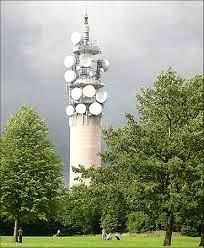 Telecommunication companies’ fears that spectrum scarcity will inflate its price in next February’s auctions are coming true.
Telecommunication companies’ fears that spectrum scarcity will inflate its price in next February’s auctions are coming true.
An internal committee of the department of telecommunications has rejected almost all the recommendations of the Telecom Regulatory Authority of India on freeing up spectrum and auctioning it only when enough is available.
If the Trai’s proposals were accepted, mobile operators would have been able to bid for an average six slots of 5 MHz in the 900, 1,800 and 2,100 MHz bands.
With more than five operators bidding in each telecom circle, competition for spectrum would not have been cut throat.
If the DoT committee’s proposals go through, however, there will be only three or four slots of 5 MHz available, and spectrum prices could again hit the roof.
The DoT has rejected the regulator’s advice to have the military vacate 15 MHz of spectrum in the 2,100 MHz band in all circles and swap it with spectrum in the 2,100 MHz band.
This would have put three extra slots of 5 MHz up for auction.
The DoT does not expect the military will vacate spectrum in the 2,100 MHz band in the near future, although talks are on.
It argues the auction should not be tied to spectrum availability and has rejected the TRAI’s suggestion that the 2,100 MHz band be sold along with the other bands.
It has also rejected the proposal asking state-run Bharat Sanchar Nigam Ltd to surrender 1.2 MHz of spectrum in the 900 MHz band in 18 circles.
The DoT has no jurisdiction to take back spectrum from BSNL under the licence agreement, the committee said.
With this chunk of air waves unavailable, there will not be more than two blocks of 5 MHz spectrum in each block of the 900 MHz band.
The committee has also rejected the Trai’s suggestion to reconsider the proposed extended GSM band, which would have freed up another block of 5 MHz for auction.
The two incumbent operators in each circle whose licences expire in 2015 will want to retain this valuable spectrum to ensure services are not disrupted.
However, mobile operators that do not have data spectrum will also be bidding up the price here.
Competition in the 900 MHz band will intensify because there is not more than one block of 5 MHz in the 1800 MHz band in key circles and that too not contiguous, making it unusable for data services.
Also, if the DoT’s recommendations are accepted, there will be no spectrum available in the 2100 MHz band, forcing operators to bid up the limited spectrum in the 900
The DoT committee’s report has asked the Trai to review all key issues and will go to the Telecom Commission for a final decision. The commission can accept the report or send it back to the Trai.
If the DoT’s views prevail, Vodafone, Bharti Airtel, Idea Cellular and Reliance Communications, which must give back their 900 MHz spectrum, will have to bid aggressively to retain it.
Also, newer players like Uninor are looking to expand from voice to data services.
The DoT’s view that the defence forces will not swap spectrum in the 2100 MHz band has been questioned by telecom companies.
They argue this is a turf battle between ministries.
The defence ministry has agreed to swap bands provided the DoT notifies a “defence band” in which it will have no say.
Telecom companies that won spectrum in the 1800 MHz band in February do not have contiguous spectrum because this again needs a swap with the military.
The DoT has asked the military to vacate the band but it has not told operators to also shift out of the defence bands.
This is not acceptable to the military.
Chief executives of Bharti Airtel, Vodafone, Idea Cellular and Reliance Communications last month wrote to the DoT, saying without enough spectrum, auctions could lead to a crisis in the telecom sector.
“The inability of operators to win back 900 MHz spectrum will lead to the market leaders in these circles being forced to curtail operations due to inadequate spectrum,” the telecom bosses said in a joint letter to Ravi Shankar Prasad, minister for communications.
The committee has also rejected the Trai’s suggestion to liberalise existing 1800 MHz spectrum after licensees the pay auction-determined price.
CALL DROP?
- SPECTRUM SWAPPING: DoT panel has rejected Trai’s suggestion to ask the defence services to vacate 15 MHz of 2,100-MHz spectrum in all circles and allow swapping of that with 1,900-MHz
- BAND DISTINCTION: Says auction of 2,100-MHz spectrum cannot take place simultaneously with 900-MHz and 1,800-MHz bands
- NO SURRENDER: Rejects the proposal asking state-run BSNL to surrender 1.2 MHz of 900-MHz spectrum in 18 cricles
- NO EXTENSION: Rejects the suggestion to reconsider the proposed extended GSM band, that may have provided another block of 5 MHz for auction
- LITTLE ON OFFER: If the committee’s report is accepted, there will be more than five players bidding for three or four slots of 5 MHz each in 18 circles










